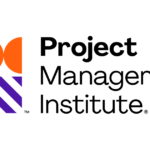Retail insurance subsector can grow and thrive even in challenging economic conditions by diversifying its products. It has the potential to improve the lots of the people, and jump-start the economy, writes JOSEPH INOKOTONG.
RETAIL insurance refers to insurance products sold directly to individuals or small businesses, typically through various distribution channels such as: Insurance agents or brokers; Online platforms; Banks or financial institutions, and direct mail or telemarketing.
Products of Retail insurance are designed to meet the specific needs of individuals or small businesses, providing coverage for personal risks; e.g., health, life, disability; property risks (e.g., home, auto, contents), and Liability risks (e.g., personal, professional).
Examples of retail insurance products include: Personal lines insurance (e.g., homeowners, auto, and umbrella); Life insurance (e.g., term life, whole life, universal life); Health insurance (e.g., individual, family, supplemental); Travel insurance and small business insurance (e.g., liability, property, workers’ compensation).
It is pertinent to state that Retail insurance is typically characterized by standardised policies, fixed premium, easy application processes, and direct customer support.
In contrast, wholesale insurance typically involves larger commercial risks and customized policies, often sold through intermediaries like brokers or agents.
Despite challenges, the retail insurance subsector can grow in a depressed economy by diversifying products – offering innovative, tailored solutions addressing specific economic downturn-related risks. Through the expansion of distribution channels, retail insurance can grow leveraging digital platforms, partnerships, and alternative distribution methods.
Also, enhancing customer engagement could be a step to growth, by providing exceptional service, support, and education to build trust and loyalty. Focusing on essentials is another avenue for growth, by emphasizing critical coverage like health, life, and income protection.
Others are, offering flexible payment options – Allowing premium financing, installment plans, or temporary premium reductions. Investing in technology – streamlining processes, improving efficiency, and reducing costs. Targeting underserved markets – reaching low-income, minority, or niche groups with tailored products. Building strategic partnerships – Collaborating with organizations, associations, or affinity groups.
Developing risk management solutions – Helping customers mitigate risks, reducing claims, and improving outcomes. Fostering a culture of innovation – Encouraging experimentation, learning from failures, and adapting to changing circumstances.
By implementing these strategies, retail insurers can grow and thrive even in challenging economic conditions.
Retail insurance plays a pivotal role in a society, which can positively impact the well-being of individuals in society in numerous ways, one of which is financial well-being. By providing risk protection and income replacement, retail insurance provides financial security against unforeseen events, while Life insurance and disability insurance ensure continuity of income. Medical expense coverage – Health insurance helps manage healthcare costs, and Asset protection – Property insurance safeguards homes, businesses, and possessions.
Also, it can influence the emotional well-being of the people through various ways by ensuring peace of mind due to its ability to reduce stress and anxiety. Financial stability – Provides reassurance during uncertain times. Sense of security – lKnowing one is protected against potential risks.
Retail insurance can positively impact people’s physical well-being by availing the people access to healthcare. Health insurance enables timely medical treatment. Other ways are via health promotion. Some insurance plans offer wellness programmes and preventive care.
Social well-being – Community support: Insurance can provide financial assistance during crises. Social stability – Insurance helps maintain social status and standard of living.
Retail insurance can offer long-term benefits to individuals in a given nation like the retirement planning, where life insurance and annuities support retirement goals are made available. Education planning – Insurance can fund education expenses. Business protection – Insurance helps entrepreneurs manage business risks.
The vulnerable populations can benefit from retail insurance’s provision for low-income families via microinsurance and subsidised plans, which provide access to insurance.
Senior citizens can partake through specialized insurance products targeted at addressing age-related risks. Same is applicable to people with disabilities that can access customised insurance plans designed to meet their unique needs.
Retail insurance can significantly enhance the overall well-being of individuals in society by providing financial protection, peace of mind, and access to essential services.
A vibrant retail insurance market can make significant contributions to the overall growth of the insurance industry in a country, apart from other enumerated benefits.
One of the ways it can contribute to the growth of the larger insurance sector is by increasing penetration, when it expands insurance coverage to a larger population, and diversifying products by introducing new products and services.
Retail insurance has the potential to contribute effectively to the overall growth of the insurance industry in a country. Its economic contributions can be measured from the Gross Domestic Product (GDP) growth when the Insurance premiums contribute to national GDP. Job creation – Insurance companies, agencies, and related services employ thousands. Tax revenue – Insurance companies pay taxes, contributing to government revenue. Investment – Insurance companies invest premiums, stimulating economic growth.
It can positively impact the development of the industrial sector when market expansion is achieved. Retail insurance increases penetration, reaching new customers. Product innovation – Insurers develop tailored products, meeting evolving needs. Competition – Retail insurance fosters competition, improving services and pricing. Regulatory framework – Retail insurance helps shape regulatory policies.
In the area of social impact, financial inclusion can be increased when retail insurance reaches underserved populations. Risk management – Insurers educate customers on risk mitigation strategies. Social protection – Insurance provides financial security, reducing poverty. Health and wellness – Health insurance promotes preventive care.
It helps in infrastructure development through the adoption of technology. Insurers invest in digital infrastructure, and in the process enhance efficiency.
Distribution networks – Retail insurance expands distribution channels. Claims processing – Efficient claims processing improves customer experience.
Government can get support through the Public-private partnerships (PPP) arrangement, where insurers collaborate with governments on social programmes. Policy support – Retail insurance informs policy decisions, shaping industry growth. Regulatory compliance – Insurers ensure adherence to industry standards.
The long-term benefits are increased insurance awareness; improved financial literacy; enhanced risk management culture, and sustainable industry growth.
Through its contributions to the growth of the insurance industry, retail insurance plays a vital role in developing a more resilient economy, enhancing financial stability, and improving overall well-being.
READ ALSO: Atiku, Obi ticket stands a better chance in 2027 — Group
WATCH TOP VIDEOS FROM NIGERIAN TRIBUNE TV
- Relationship Hangout: Public vs Private Proposals – Which Truly Wins in Love?
- “No” Is a Complete Sentence: Why You Should Stop Feeling Guilty
- Relationship Hangout: Friendship Talk 2025 – How to Be a Good Friend & Big Questions on Friendship
- Police Overpower Armed Robbers in Ibadan After Fierce Struggle






